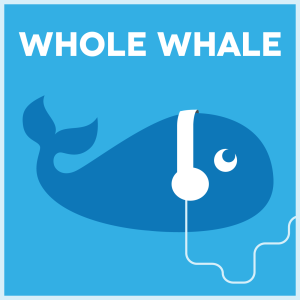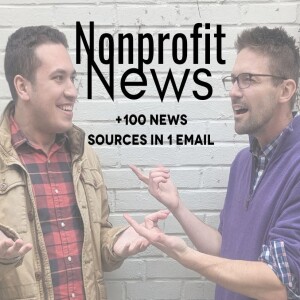
Using the Whole Whale - A Nonprofit Podcast
Business:Non-Profit

So, what happens when a nonprofit board meets with a Silicon Valley CEO?
The two factions of OpenAI clashed like the resistance fighting the empire in a scene from Star Wars but with fewer special effects. Here’s what we think is happening based on reports…
OpenAI, initially a non-profit dedicated to beneficial AI development, has undergone a significant transformation via high-speed drama this weekend. After former CEO Sam Altman was ousted, executive Greg Brockman decided to quit OpenAI, with Twitch's ex-CEO Emmett Shear stepping in. Microsoft's Satya Nadella announced Altman and Brockman, along with others, would join Microsoft. This move represents a substantial gain for Microsoft, which already holds a perpetual license to OpenAI's intellectual property, and now acquires key talent without financial or antitrust risks. This shift signals a loss for OpenAI, heavily reliant on Microsoft for funding and resources. OpenAI's flagship product, ChatGPT may face uncertainties given these developments.
Some observers critique the evolution of OpenAI's non-profit model, originally aimed at advancing AI for humanity's benefit without financial constraints. However, financial pressures led to the creation of OpenAI Global, LLC, with Microsoft as a minority owner, altering OpenAI's commitment to openness and non-profit principles. The release of ChatGPT, while a massive success, exacerbated internal ideological rifts within OpenAI that contributed to Altman's ouster. Microsoft, heavily invested in OpenAI technology, finds itself in a more advantageous position, now directly acquiring the talent and technology it was partnered with. Analysts suggest this to mean a consolidation of AI advancements under large, well-funded corporations, with OpenAI's original non-profit vision and structure becoming increasingly untenable.
So for this episode the score is: nonprofit ethos 1, Silicon Valley CEO 0
- but this is definitely not the end of this saga, expect many sequels and prequels.
Billionaires including Eric Schmidt plow $300 million into a non-profit that is France's latest push to catch up in AI | Fortune
The new French AI research lab Kyutai, backed by a budget of nearly €300 million (around $330 million), is set to make significant strides in artificial intelligence. Spearheaded by French billionaire Xavier Niel and supported by figures like Rodolphe Saadé and Eric Schmidt, Kyutai aims to be a nonprofit hub for artificial general intelligence research, collaborating with researchers and PhD students on open-source projects. The lab boasts considerable compute power, including a thousand Nvidia H100 GPUs, and is led by a team of seasoned AI experts. It distinguishes itself by encouraging researchers to publish their work, a practice increasingly rare in big tech firms. This initiative aligns with France's broader strategy on AI, as articulated by President Emmanuel Macron, focusing on open source development as a national asset and advocating for regulations that ensure safety and innovation in AI applications.
Rosalynn Carter, mental health activist, humanitarian and former first lady, dies at 96 | CNN
Rosalynn Carter, who passed away at 96, was a trailblazing First Lady, redefining the role by actively championing mental health reform and advocating for human rights. Her tireless work set a new precedent for presidential spouses, emphasizing social impact and public service. Rosalynn's enduring legacy is highlighted by her efforts to destigmatize mental health issues and her pivotal role in The Carter Center's humanitarian initiatives. Her commitment to these causes and her influence as First Lady have left a lasting mark on social advocacy and the evolving role of presidential spouses in public service.
Donor-Advised Fund Report: Grants to Charities Increase 9%, Hitting a New Record High | nonprofit
The 2023 Donor-Advised Fund (DAF) Report reveals a robust increase in DAF philanthropy in the United States, with grants to charities growing by 9% to a record $52.16 billion. Despite challenges in the broader economy, donors consistently increased their DAF contributions for the 13th consecutive year. The report notes a shift to what might be a 'new normal' in DAF growth rates, post-COVID-19. Key findings include a 9% increase in contributions to DAF accounts, totaling $85.53 billion, and a 2.9% rise in the number of DAF accounts to 1,948,545. The average DAF account size decreased slightly, and the grant payout rate dipped to 22.5%. Eileen Heisman, CEO of National Philanthropic Trust, highlights the growing variety of giving tools and the critical role DAFs play in easy, streamlined philanthropy, expecting this trend to continue benefiting charities globally
More Episodes
 2024-02-06
2024-02-06
 120
120
 2024-01-16
2024-01-16
 132
132
 2024-01-10
2024-01-10
 156
156
 2023-11-14
2023-11-14
 109
109
 2023-11-07
2023-11-07
 100
100
 2023-10-17
2023-10-17
 106
106
 2023-10-13
2023-10-13
 110
110
Create your
podcast in
minutes
- Full-featured podcast site
- Unlimited storage and bandwidth
- Comprehensive podcast stats
- Distribute to Apple Podcasts, Spotify, and more
- Make money with your podcast
It is Free
- Privacy Policy
- Cookie Policy
- Terms of Use
- Consent Preferences
- Copyright © 2015-2024 Podbean.com





